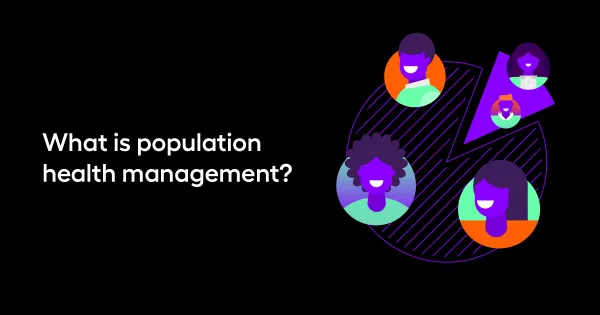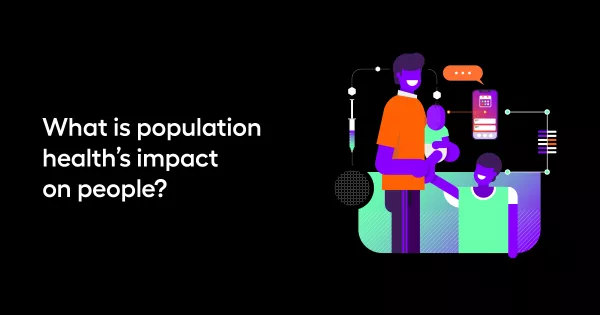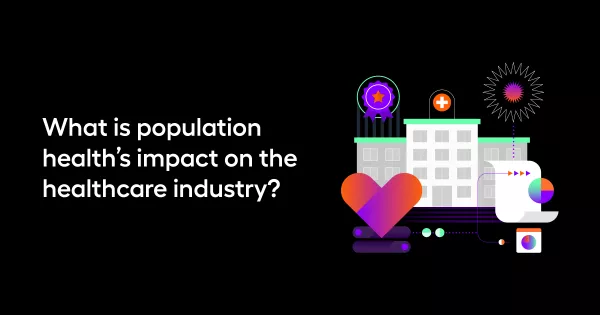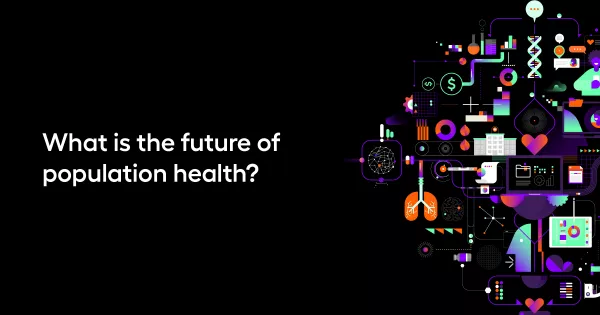What is population health management?
Enhancing people, care, and outcomes in the healthcare industry
In the dynamic landscape of healthcare, one concept that has gained significant traction in recent years is population health management (PHM). Designed to improve the overall well-being of communities and enhance healthcare outcomes, PHM has become an essential strategy for healthcare organizations.
In this article, we will delve into the fundamentals of population health management, exploring its impact on people, care, and the industry.

What is population health management?
Population health management refers to the strategic approach used by healthcare organizations to improve the health outcomes of a defined group of individuals within a given population. It involves analyzing and managing the health of populations, rather than focusing solely on individual patient care.
By identifying and addressing health issues at the population level, population health management aims to improve the overall health status of communities, reduce healthcare costs, and enhance the efficiency of care delivery.

What is population health’s impact on people?
At the heart of population health management lies the objective of positively impacting people's health and well-being.
By adopting a proactive and preventive approach, PHM aims to identify and address health risks and determinants before they escalate into serious medical conditions. This approach includes early detection, risk stratification, and personalized interventions to improve health outcomes.
PHM emphasizes patient engagement, empowering individuals to take an active role in managing their health. By providing education, resources, and tools, healthcare providers can encourage lifestyle modifications, promote preventive screenings, and foster self-management of chronic conditions.
Through population health initiatives, individuals can lead healthier lives, reducing the burden of illness and improving their overall quality of life.

What is population health’s impact on care?
Population health management aims to transform the way healthcare is delivered, shifting the focus from reactive treatment to proactive and preventive care.
By employing data analytics and predictive modeling, PHM enables healthcare organizations to identify high-risk individuals and intervene early to prevent or manage chronic conditions effectively.
Care coordination is a critical component of PHM, ensuring that patients receive comprehensive and well-coordinated care across multiple healthcare settings. This involves fostering collaboration between healthcare providers, leveraging technology to share patient information securely, and streamlining care transitions.
By improving care coordination, population health management reduces duplication of services, enhances patient satisfaction, and ultimately leads to better health outcomes.

What is population health’s impact on the healthcare industry?
Population health management has a profound impact on the healthcare industry. By focusing on prevention and early intervention, PHM helps reduce healthcare costs associated with expensive emergency care, hospital admissions, and long-term treatments.
This shift towards value-based care and population health initiatives aligns with the industry's transition from fee-for-service to value-based reimbursement models. Furthermore, population health management fosters collaboration between healthcare organizations, payers, and community stakeholders.
Through partnerships, data sharing, and shared accountability, the industry can address social determinants of health, such as access to care, socioeconomic factors, and environmental conditions, which play a crucial role in population health.

What is the future of population health?
Population health management is a strategic approach that aims to improve the health outcomes of defined populations, transforming the way healthcare is delivered. By focusing on people, care, and the industry, PHM empowers individuals to lead healthier lives, enhances care coordination, and reduces healthcare costs.
As the healthcare industry continues to evolve, population health management will play an increasingly vital role in achieving better health outcomes for communities worldwide.
Managing population health and meeting financial goals requires robust analytics. Healthcare leaders across the board should embrace PHM as an essential strategy for improving population health and advancing the future of healthcare.
See how it’s possible to create realistic healthcare benchmarks that provide a holistic view of population health.
